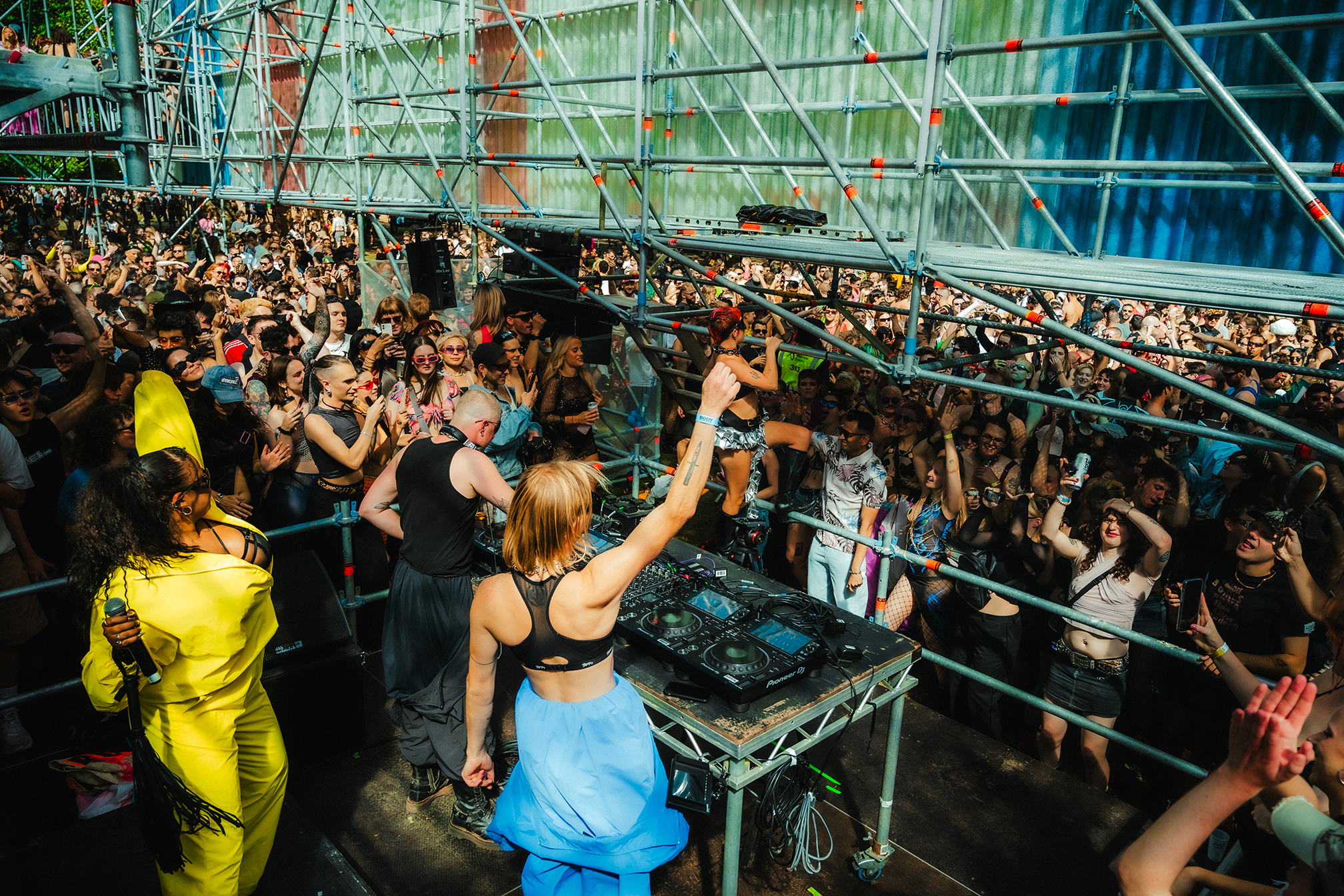 Features
Features
"Festival of dreams": Body Movements 2024 was a playground for London's queer ravers
Celebrating its biggest iteration yet at London’s Southwark Park, Body Movements made a spectacular return over the Bank Holiday weekend with a space for unabashed expression and adventure
August Bank Holiday is famously a big weekend in London. Notting Hill Carnival, All Points East, Boiler Room Festival, Eastern Electronics, and plenty more parties brought thousands to the capital’s various corners across the weekend. But among the city’s queer clubbers, there was only one event on everyone’s lips: Body Movements.
Dubbed a “DIY, radical queer gathering”, Body Movements was founded in 2021 by DJ, producer and trUst label head Saoirse alongside Little Gay Brother and FEEL IT creator Clayton Wright. Initially born as a cross-venue party across 15 spaces in Hackney Wick, Body Movements leapt into a new “playground” this summer in South-East London’s Southwark Park, marking the biggest iteration yet of one of the UK’s first-ever festivals solely dedicated to queer dance music.
Taking place for one day only on August 25, Body Movements boasted an enviable line-up of over 80 homegrown and international LGBTQIA+ DJs, artists and collectives including LSDXOXO, Confidence Man, Peach, and Pxssy Palace. It also housed five custom-built stages with names making sly innuendos, from The Snatch to Glory Hole; new-and-improved soundsystems; a queer vendors' village; and an on-site art exhibition.
For Clayton and Saoirse, scaling up means they’ve been able to create the “festival of dreams”, an aim of theirs since 2012. “Body Movements is our love letter back to our community,” Clayton says. “We wanted to do something that not only resonates with queer people but forges ahead and shows the whole festival industry that we’re doing something really exciting and dynamic.”
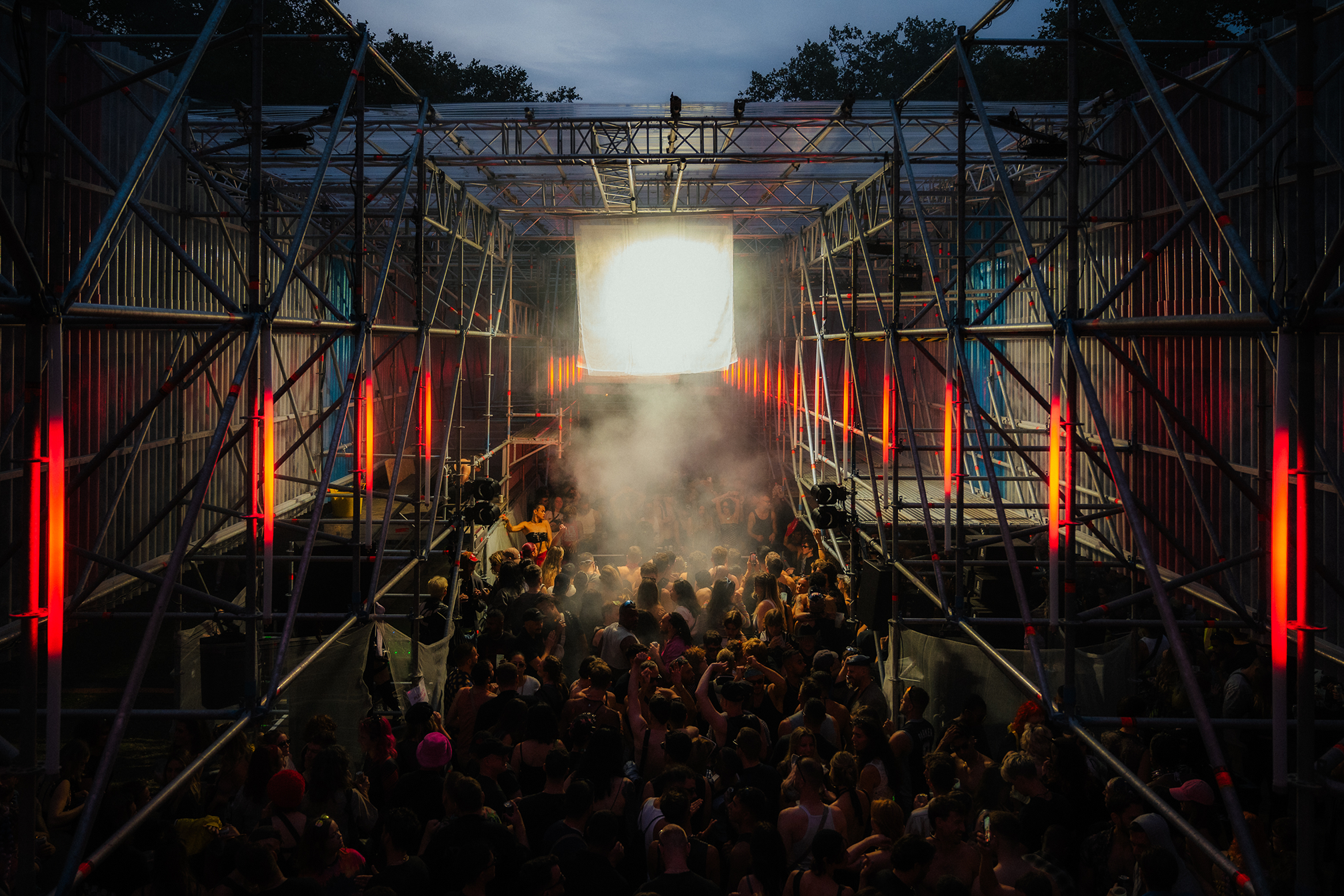
This year's Body Movements was a masterclass in platforming a spectrum of electronic sub-genres – from ballroom to acid and hyperpop-infused garage sets. Traversing ’90s Eurohouse, leftfield techno and hard house in a special B2B set with Adonis founder Shay Malt, Michelle Manetti, a veteran of London’s LGBTQIA+ scene and co-founder of FLINTA*-focused club night Fèmmme Fraîche, says that Body Movements is the only time the full breadth of London’s queer scene come together in one place. “London is really spoiled for choice. In other cities, there may be one gay night a month, and maybe it’s not necessarily the genre or crowd everyone assimilates with,” she says. “The beauty of Body Movements is that it brings all of the city’s collectives together". Clayton compares it to a school open day, where the crowd can dip in and out of different pockets of music subcultures.
Wherever you found yourself across the site, among a sea of lace, leather, mesh, singlets, and rhinestones, 'Free Palestine' chants could be regularly heard, and queer flags painted with affirmations breezed through the air. The stages themselves were a sight to behold, too, built out of corrugated plastic and steel or resembling a scaffolding tower. The Strap was the most striking of them all – emitting a rainbow of smoke, light, and a flock of thong-clad dancers. Before hosting a flawless closing set by head honcho Saoirse, The Strap welcomed the “sexy, sweaty and ecstatic” sounds of BASHKKA as night fell. The Munich-born artist dedicates her platform to confronting the exclusion of trans people from mainstream spaces, while her unpredictable sets, which she says herself are always a “surprise to myself and the crowd”, celebrate their founding contributions to electronic music.
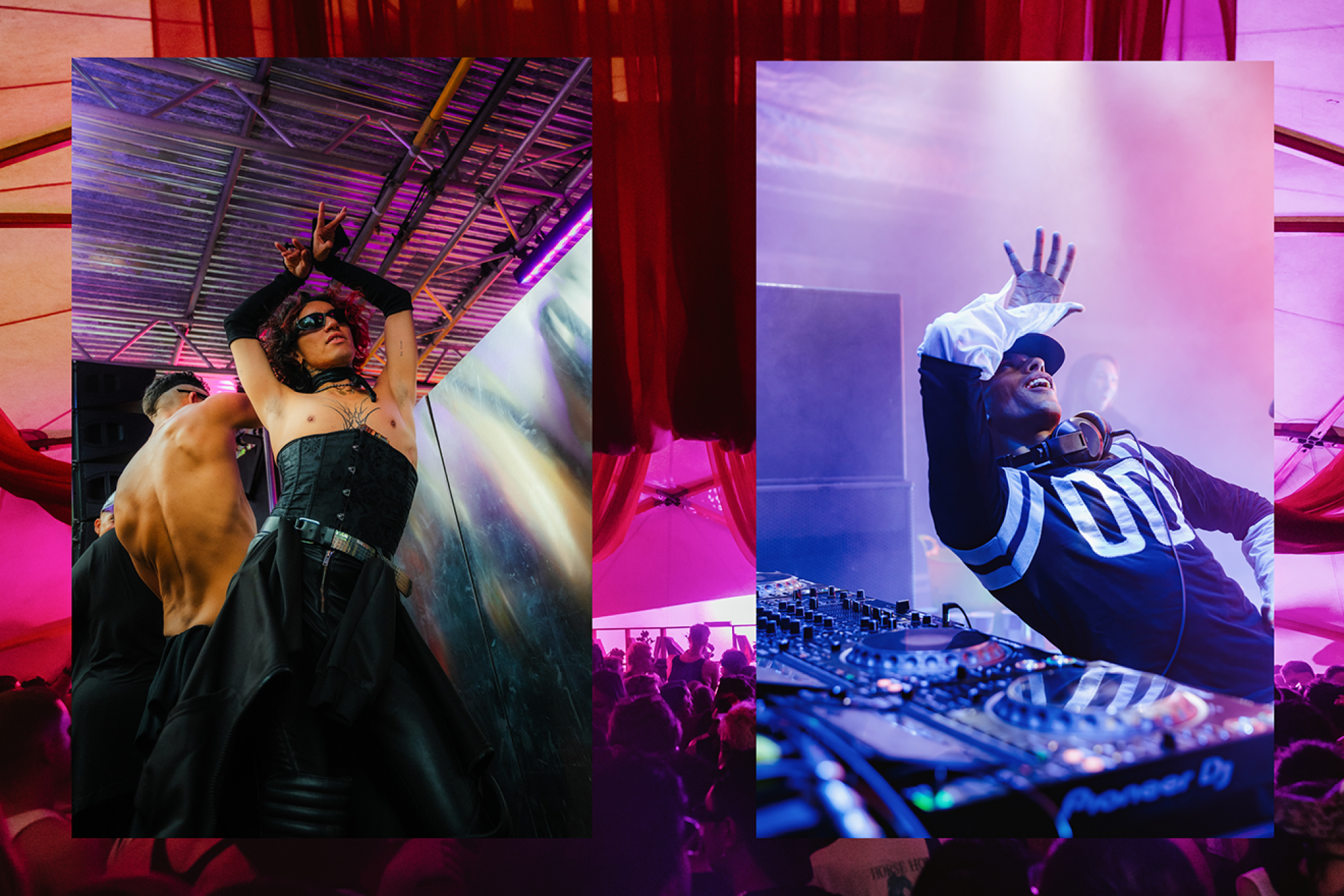
“Given today’s cultural and political landscape, events like Body Movements aren’t just important, they’re fucking essential,” BASHKKA tells Mixmag. In recent years, a tirade of anti-trans rhetoric has washed over the UK, the community used as political chess pieces or facing daily hate crime, which jumped by 11% from 2022 to 2023. “These events aren't just celebrations, they’re statements of survival and resistance.”
BASHKKA calls for the dance music scene to confront its own hypocrisy, whether it’s found in biased booking practices, a lack of industry support for marginalised communities, or superficial diversity initiatives. “Real change means amplifying our voices and ensuring us access to headlining slots, media exposure, cover stories, and most importantly, industry power. I want to see us in those positions, making our own decisions.”
When it comes to selecting artists like BASHKKA – whose set is imbued with remixes of queer, pop and R&B icons – Saoirse and Clayton’s approach is different to most organisers. “We know the people that play at Body Movements – it’s people that are family, people that we love and have had these dancefloor experiences with,” Clayton says. “I think that’s what makes it feel different – you can tell there’s a lot of love in the space and love behind the people that are playing with us. They’re not just here to get a cheque.”
Exploring R&B, alt-pop, techno, and reggaeton in a B2B alongside her fellow Body Swap founder Harietta, Karlie Marx is one of the local up-and-coming trans DJs who Clayton asked to play. She says that for trans artists and fans, electronic music is “one of the few outlets we have”, which makes representation paramount. “The barriers of visibility as a trans DJ start before you even reach the club,” she says, recalling how earlier in her transition she could rarely make it to her gigs on public transport without being a victim of hate crime. “Those kinds of experiences keep you in the house and you lose out. The pathways can’t be the same because non-minoritised cis DJs have a head start on energy, money and safety.”
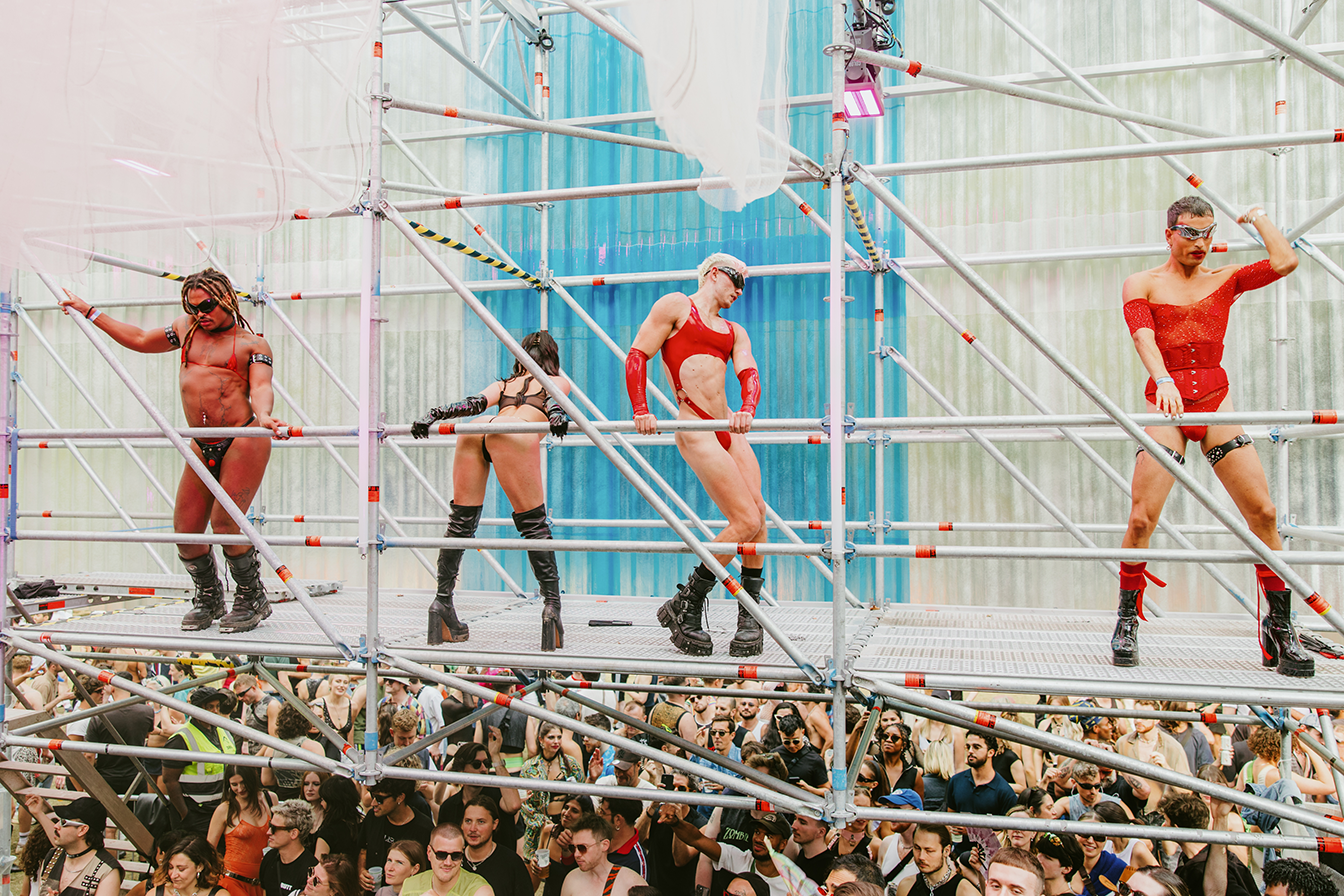
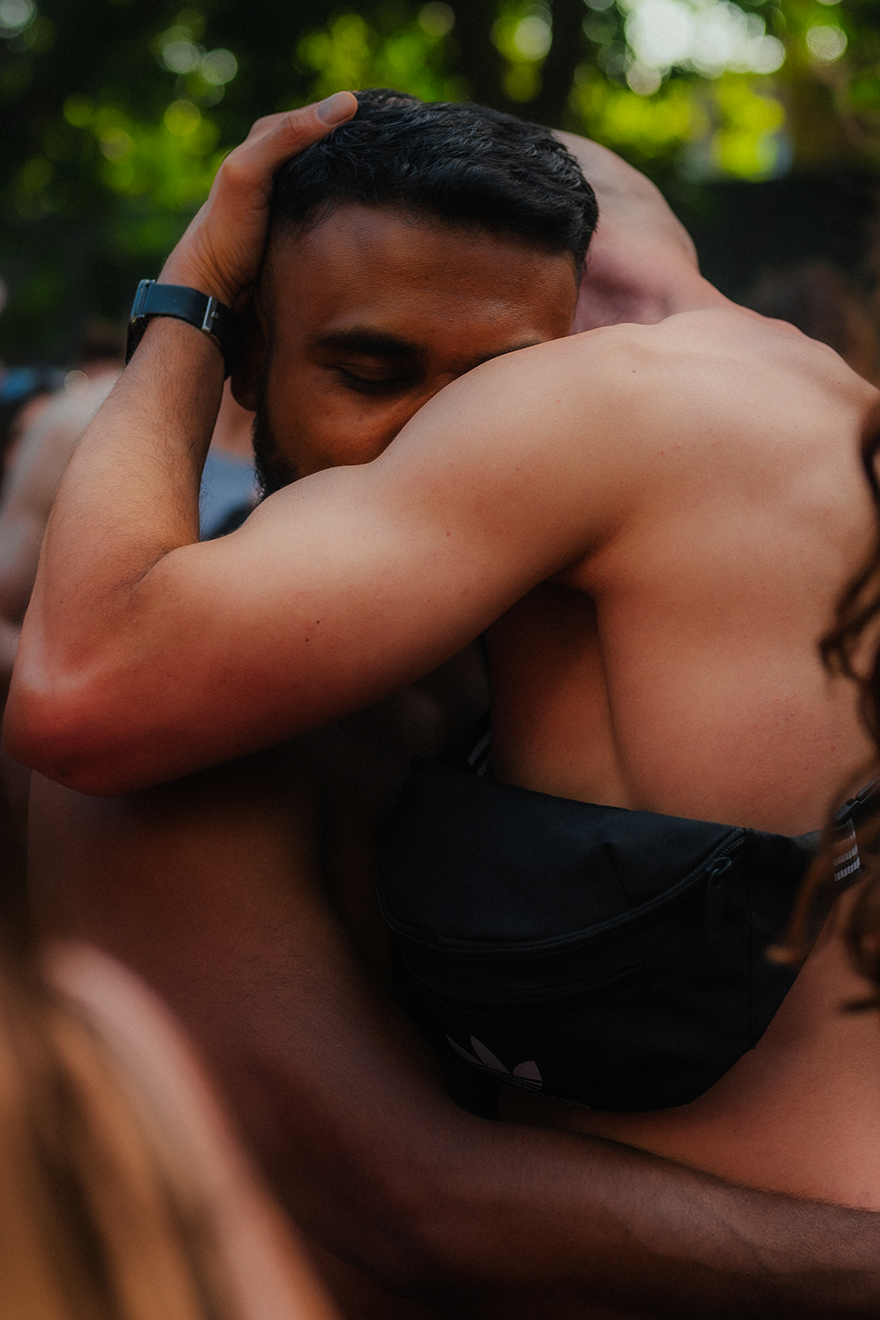
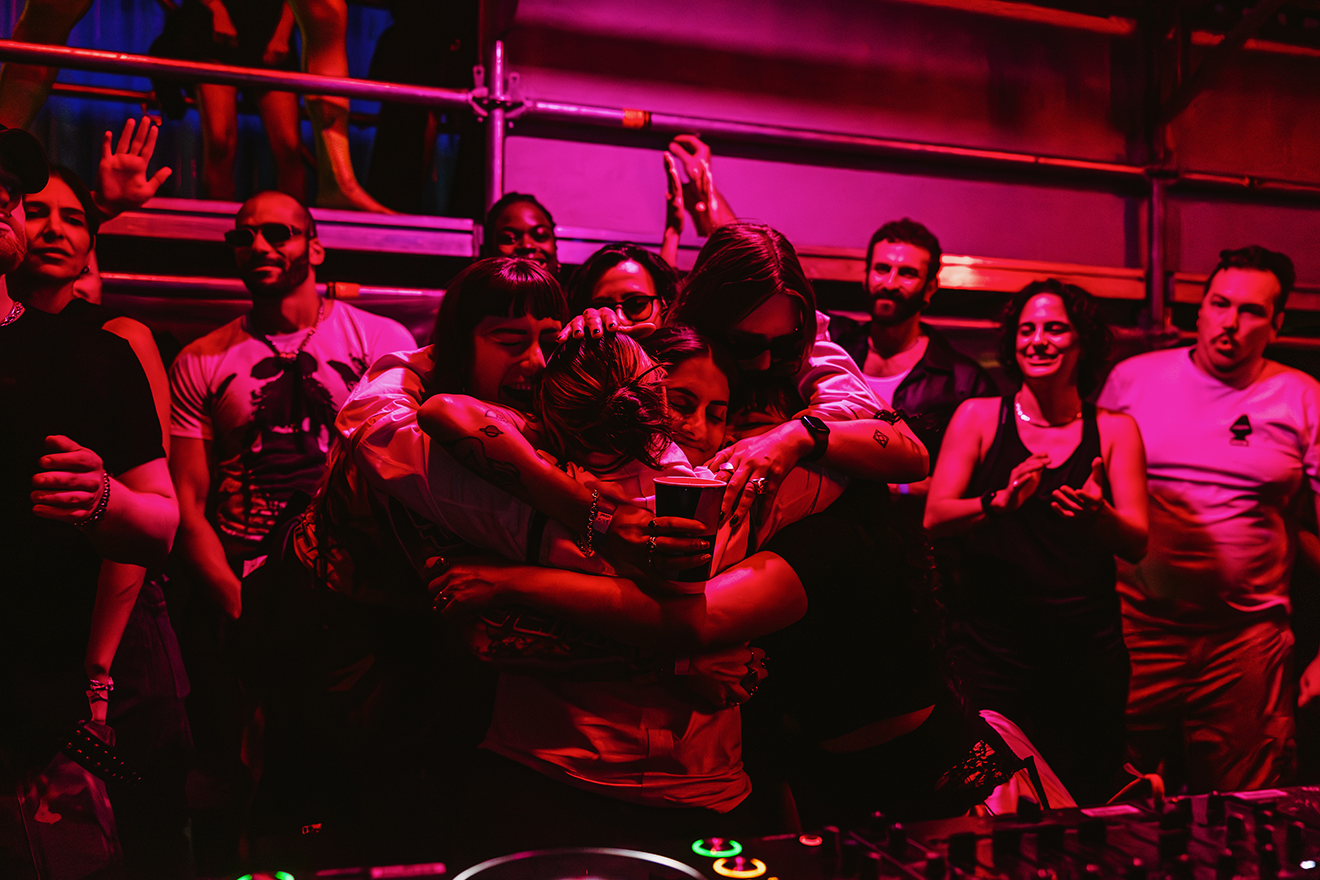
As well as going out of its way to support local trans and non-binary talent, the festival invests a large portion of its ticket sales and donations into its acts, charity partners, and community projects, which include Stonewall Housing and London Trans+ Pride. “We’re not here with big sponsors, we’re doing all that we can with our own money,” Clayton says. “I do take umbrage to those big straight promoters who market to queer people using dancers or DJs to add colour to their line-ups, and then don’t give a shit about our welfare, safety, or paying us properly. Body Movements stands on its own legs because we’re doing it for real and for the right reasons.”
What does he dream of for the future of the festival? For it to become the UK’s leading summit of queer music, with more stages and more funding to foster workshops, education, and knowledge sharing. “I want to bring that non-musical programming up to par with where the music is,” Clayton says. “I want people to come to this community not only to dance, but to share, love and learn, which is what Body Movements is all about.”
Throughout the day, it’s glaringly obvious that Body Movements is so much more than a melting pot of queer electronic talent. It’s about offering a space for marginalised communities to feel safe and affirmed in their identities and sexualities. It’s about visibility, and fighting against systemic barriers that suppress and deny queer livelihoods. It’s about unabashed expression and adventure. Whether through its radical ethos or community-serving behind-the-scenes practices, Body Movements is on a mission to shake up the UK’s festival circuit for good.
Jordan Page is a freelance writer, follow him on Twitter


